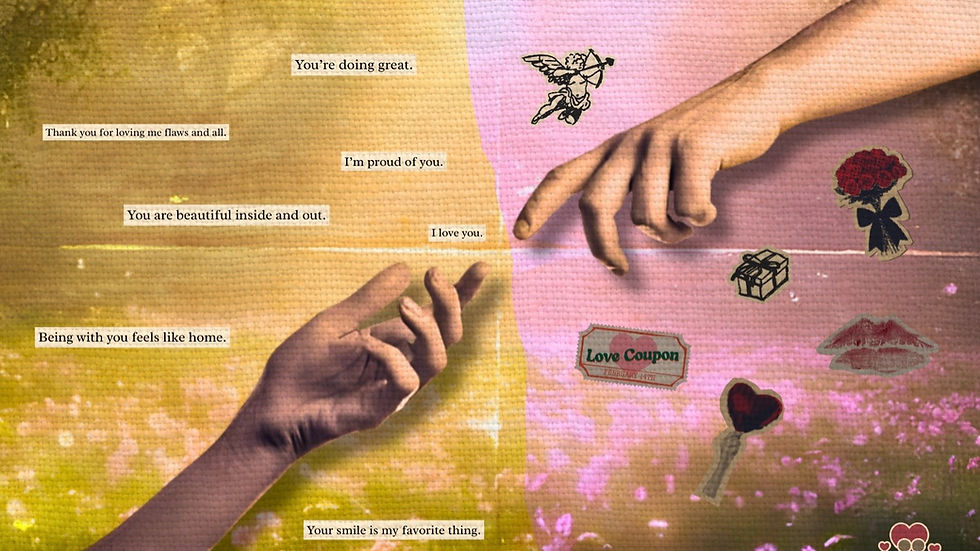How E-Gambling in the Philippines became a war against the poor
- The Communicator
- Sep 7, 2025
- 4 min read
Every coin has two sides.
And it’s the same with e-gambling in the Philippines.
On one side, owners and operators rake in millions of pesos every day. On the other, many Filipinos, especially the poor, watch their last peso vanish with every click, further spiraling into poverty.

What’s branded as “entertainment” and “easy money” has spread like a silent epidemic in the country, preying on the hopeful and the hungry. Its promise of quick but momentary riches with just a tap on the screen only leaves its players trapped in addiction and drowning in debt.
Online casinos in the Philippines are nothing new, but the pandemic pushed them into overdrive. Lockdowns left people stuck at home, and games, like e-sabong, exploded in popularity. The rise of mobile wallet apps such as GCash and Maya made betting easier. What was designed to make everyday financial transactions faster and more convenient became a gateway to gamble from one’s phones.
According to the Philippine Amusement and Gaming Corporation (PAGCOR), the local gambling sector generated P215 billion in gross gaming revenues (GGR) from January to June, well above the P171 billion from the previous year. PAGCOR Assistant Vice President Jessa Fernandez also reported that as of June 2025, the income from online games reached 59.92%, totaling P32 billion.
But behind these impressive figures are real lives: a tricycle driver pawning his motorcycle to pay debts, a mother borrowing money to put food on the table after losing her wage in a single bet, and a student gambling away tuition in hopes of doubling it.
In recent years, e-gambling has slowly woven itself into the daily lives of countless ordinary Filipinos, luring them with the false promise that a month’s hard-earned wage can be won in minutes. What begins as a seemingly harmless bet often becomes the first step into a cycle of loss—not just of money, but also of dignity, trust, and personal relationships.
Government's response
The legal battleground reflects the same imbalance that defines e-gambling itself. In the Senate of the Philippines, Senate President Juan Miguel “Migz” Zubiri’s Anti-Online Gambling Act of 2025 seeks to shut down digital casinos entirely—blocking apps, internet providers, and even payment gateways. Meanwhile, Senator Sherwin “Win” Gatchalian has filed bills pushing for stricter identity checks, advertising limits, and higher minimum bets.
In the House of Representatives, lawmakers went after financial platforms, proposing heavy penalties of up to five million pesos on e-wallets that allow gambling-related transactions. On August 14, the Bangko Sentral ng Pilipinas (BSP) issued Memorandum No. M-2025-029, suspending in-app gambling access in all BSP-supervised institutions’ (BSIs) mobile payments apps and websites within 48 hours. The directive was issued in response to “the surge in online gambling transactions and the heightened public concern on its financial health impact to consumers.”
In compliance, prominent electronic wallets GCash and Maya removed their links to gambling games via ‘GLife’ and ‘Games’ respectively. On paper, these measures appear tough and uncompromising. Yet reality tells a different story.
Instead of targeting the billion-peso operators at the top, these proposals often place the burden on ordinary people. Higher minimum bets force small-time gamblers to spend beyond their means, while e-wallet restrictions cut off the very platforms people rely on daily—not just for gambling, but also for sending money or paying bills.
This makes the regulation especially unjust to the poor. The wealthy can afford to treat gambling as a pastime, shielded from the fallout of their losses. For the underprivileged, these laws add another layer of vulnerability: punished if they gamble, and disadvantaged if access to financial services is restricted. Once again, the powerful remain untouched, while the weight of reform falls on those with the least.
Menacing normalization
Even as legislation attempts to catch up, the industry thrives in plain sight. Along EDSA, massive billboards flash gambling apps like bright invitations. On social media, pop-up advertisements promise easy wealth. And on television or online campaigns, familiar celebrities and influencers endorse gambling platforms as if they were just another harmless brand.
Vic Sotto, a well-known name in the industry was tapped as the official ambassador of PlayTime PH, encouraging Filipinos to “game responsibly.” But when an icon trusted by generations smiles beside a gambling app, the harm becomes harder to see. And he is not alone—other personalities, from actors to vloggers, have lent their faces to the industry, normalizing what has already ruined lives.
This normalization is perhaps the clearest proof of how anti-poor the system has become. Celebrities and big operators have the luxury to endorse, promote, and profit, while the poor are blamed for “lacking discipline.”
A wealthy man can lose thousands in a single sitting and laugh it off, but a minimum-wage earner who risks his daily pay is left to face hunger, shame, and even jail time.
In addition to that, addiction is also treated as a personal weakness of the poor, while corporate greed is excused as “business.” The system shames those who fall into the trap, but never those who built it.
The landscape of e-gambling in the Philippines is not just a regulatory issue—it is social, moral, and deeply personal. It thrives on inequality, squeezing the underprivileged for every peso while shielding those who control the industry. It is a machine that feeds on despair, one that turns poverty itself into profit.
Until laws truly strike at the roots of this industry, and until society confronts the normalization of gambling in billboards, ads, and celebrity endorsements, this will remain more than just a game. It is a war, and the poor are paying the highest price.
Article: Kriza Marielle Sumang and Mikaelah Bianca Panopio
Graphics: Kent Bicol




Comments